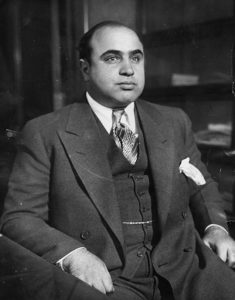Comment by Greg Ray
Far be it from me to criticise the Australian justice and law enforcement systems. Mainly because I wouldn’t want to be sued for defamation if somebody chose to take personally any criticism I might make.
The most I will do is observe that I am sometimes quite intrigued by things that occur in the twin realms of law enforcement and justice; things that lead me to ponder what implications might flow for other situations in future.
In recent times I’ve been moved to such pondering by a variety of instances and last week brought two more that really got me scratching my head.
One was the acquittal of Hillsong Church identity Brian Houston over his failure to tell police of sexual assaults against a child, committed by Houston’s late father Frank back in the 1970s. Apparently, by Brian Houston’s admission, his father had molested several children to his knowledge and the true number might have been higher. Houston has said he only learned of the abuse in 1999. His father died in 2004, never having been charged over his crimes.
Observers of the Australian political scene might recall that the Houstons have been close associates of many powerful people, not least former prime minister Scott Morrison, and that a variety of Australians influential in important spheres of society have strong connections with the “prosperity gospel” megachurch the Houstons founded.
It might be recalled that it seemed to take a long time for the police to commence an investigation into the matter. I’ve no idea about details of the investigation. I don’t know whether, for example, any other of Frank Houston’s victims were identified or questioned. Brian Houston was only charged over failing to notify police of a single instance and now he has been acquitted it seems the matter may be completely finalised.
Magistrate Gareth Christofi, who acquitted Brian Houston, did so – as I understand it – on the basis that Houston apparently had a reasonable excuse for not reporting the crime. The reasonable excuse, again as I understand it, is that Houston knew, or reasonably believed, that the victim did not want the matter taken to the police. The victim, Brett Sengstock, told the court that he never told Houston he didn’t want the crime reported to police, but it seems Houston’s account was preferred. Also rejected was Mr Sengstock’s allegation that a $10,000 payment made to him was “hush money”. It might instead be viewed as compensation, the magistrate found.
I was talking to a schoolteacher about this the other day and she said she wondered what it meant for people like her who operate under a legal requirement to report even a suspicion of sexual abuse against a child. It is generally thought that this requirement stands, regardless of what the child might have to say about the matter being reported. But I wonder if that is still true, now that a court has ruled in the Houston case.
And what if, theoretically, a situation existed where a person who was aware of sexual abuse against a minor incorrectly believed the child didn’t want the matter to be reported? It seems that if the incorrect belief is “reasonable” then a court may be satisfied. But is an alleged belief that a minor doesn’t or didn’t want a matter reported an issue open to cross-examination in court?
No doubt there are solid legal explanations for all this. Perhaps one difference is that Sengstock was no longer a child when the abuse against him was acknowledged. At any rate, it seems clear now from this case that deciding not to tell the police about historical child abuse allegations is not a strict liability offence. This will probably be music to the ears of a lot of people in the hierarchies of various churches.
I wonder if the precedent set by this judgment will go unchallenged?
The Brittany Higgins case
The other matter that got me scratching my head was the running sore that is the Brittany Higgins case. This convoluted matter, so intensely political and such a media circus, began when Ms Higgins alleged that Liberal Party staffer Bruce Lehrmann raped her in Parliament House, Canberra.
Mr Lehrmann has staunchly denied the allegation.
As the story unfolded, other women were reported in the press making similar allegations against Mr Lehmann, but none of these allegations gained the extraordinary momentum of the Higgins case, which became – during the Morrison Government’s tenure – a dramatic guessing game of who was told what and when, and what they did about it.
We had the extraordinary tug of war between the Federal Police – apparently unimpressed with Ms Higgins’s evidence and somewhat more favourably disposed to that of Mr Lehmann – and the then ACT Director of Public Prosecutions, Shane Drumgold, who wanted to press charges but alleged the police were being unhelpful. The police denied this, vehemently.
When the matter did get to court, Mr Lehmann avoided a verdict because one juror in the case apparently brought external research material into the jury room, torpedoing the trial. The case was not retried, reportedly because of concerns about the potential impact on Ms Higgins’s mental and emotional health.
Next, Mr Drumgold asked for an inquiry into his allegations of police opposition to the charges. This inquiry rapidly saw the tables turn against Mr Drumgold, who ended up defending himself against evidence of procedural errors and alleged looseness with the truth on certain points, backing down on his accusations against the police and ultimately being forced out of his job.
Finally, to cap off this bizarre saga (so far anyway), the commissioner appointed by the ACT Government to hear the inquiry, Walter Sofronoff, turns out to have given the Murdoch press first dibs on his final report, handing it to the Liberal-aligned media outfit before even making it available to the government that commissioned him.
This is truly astounding by any measure and it makes me, as a humble citizen observer of the rambling tale, feel rather wary about the entire report. Perceptions matter, especially in an intensely political case like this one. Perhaps it is inappropriate for mere citizens to criticise commissioners, so I won’t do that. I don’t need to. Other people have wondered why the inquiry didn’t examine the circumstances of the “rogue juror” who ruined Lehrmann’s trial through misconduct. Other people have wondered whether the inquiry achieved anything at all.
Mr Lerhmann is probably pleased, the police are probably pleased, the Liberal Party is probably pleased and the Murdoch press is probably pleased. Mr Drumgold is out of a job and Brittany Higgins feels let down.
For my part, I think the giving of the report to the Murdoch press in the first instance simply creates such a bad perception that, try as I might, I can’t bring myself to accord it the credibility I would like it to have.
I think it should be chucked in a drawer and re-done, from scratch, by somebody else.


